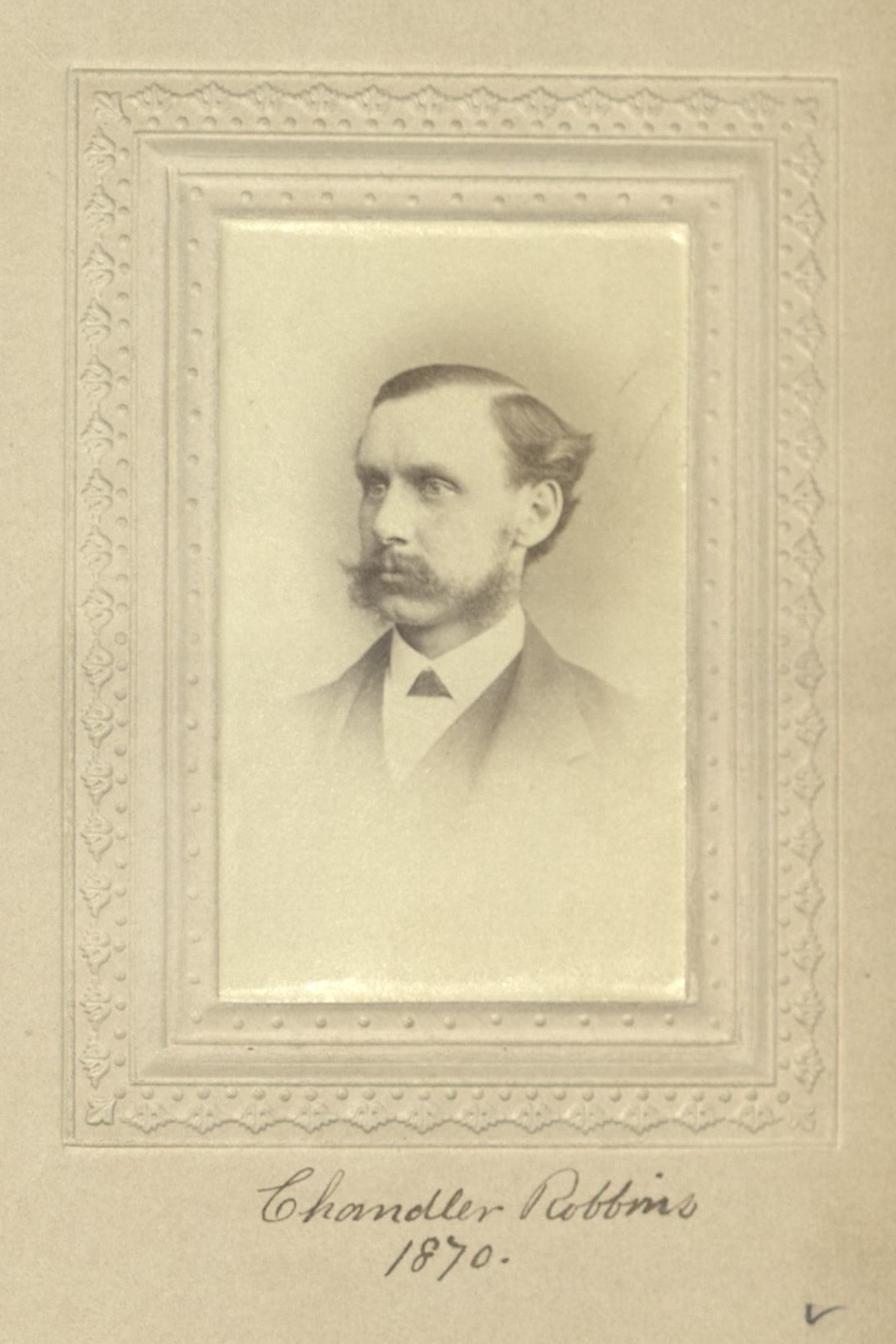Merchant
Centurion, 1870–1928
Born 5 December 1834 in Boston, Massachusetts
Died 25 April 1928 in New York (Manhattan), New York
Buried Mount Auburn Cemetery , Cambridge, Massachusetts
, Cambridge, Massachusetts
Proposed by Gustavus Tuckerman and Joseph H. Choate
Elected 2 April 1870 at age thirty-five
Proposer of:
Seconder of:
- David G. Francis
- Charles B. Hoffman
- Lincoln N. Kinnicutt
- Samuel P. Langley
- James C. Parrish
- Edward C. Sampson
Supporter of:
Century Memorials
Chandler Robbins had an important place in American trade with the East and West Indies, forty or fifty years ago. It was a natural result of his personal acquaintance with far-distant ports and people that, when he retired from active business with a fortune, he should have interested himself in the American Geographical Society. During many years, although no such office actually existed, he was practically Managing Director of that institution, whose work and policies he shaped.
Alexander Dana Noyes
1929 Century Association Yearbook
Howard Robbins graduated from Yale in 1899, and he was the class poet. Then he went to the Episcopal Theological Seminary at Cambridge, and in 1911 he became Rector of the Church of the Incarnation, succeeding Dr. [William] M. Grosvenor, who went to be Dean of the Cathedral. Dean Grosvenor died in 1916, and the following year Robbins, in turn, became Dean of the Cathedral.
The local Ordinary then incumbent was not interested in literature, or aesthetics, or great preaching, or, indeed, in thought in any form, and Dean Robbins, who had a skillful pen and a thoughtful and penetrating approach to church problems, was like Raleigh imprisoned in the Tower. In 1929 he resigned, saying only that there was “a difference of opinion,” and went back to the Church of the Incarnation as Rector.
All during his ministry Dean Robbins was passionately interested in the merging of the Episcopal and Presbyterian communions, and for that he toiled unceasingly. He became Professor of Pastoral Theology at the General Theological Seminary, where his teaching and preaching were marked with courage and liberalism and tolerance and his classes were crowded with the young and vital. To discussions of important matters he brought a cultured and well-informed mind and a never-failing courtesy that devastated the carping vaporings of narrow partisans and made them appear silly. He had sufficient faith in his own sect not to be afraid of the consequences of organic merger with another.
Like all poets he required solitude from time to time. He was elected Bishop Coadjutor of Southern Ohio in 1929, after his resignation from the Cathedral, but he would not take it. He wanted to teach and write and preach, and in this he was well advised.
He was a kind and gentle person.
George W. Martin
1953 Century Association Yearbook

